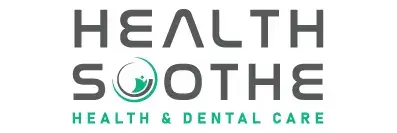Share this post
Spinal injuries are among the most severe and painful types of trauma that you can have. When you experience a herniated disc that can happen in many circumstances, you could end up with chronic pain, inflammation, and a long recovery period. Herniation of a disc occurs when one or more of your cushioning discs between your vertebrae have been pushed outward.
Dealing with a herniated disc can be extremely painful and often requires a detailed treatment plan. You will need to work with your doctors, physical therapists, and chiropractors to help your body heal when you experience a herniated disc. In some cases, once a disc has become herniated, it can weaken the area leaving you prone to further injury.
Most herniated disc injuries are located in the lower back along the lumbar spine. Injuries in the lower back are often caused by a sudden strain from lifting, falling, or an impact accident. If you are looking for help for a herniated disc, you will need to dedicate yourself to the healing process and work with your treatment team. Let’s take a closer look at a few tips to help you heal from your herniated disc injury.
Pain Management
Dealing with chronic pain can be physically and emotionally exhausting. If you are dealing with a herniated disc injury, your first move should be to consult with a pain management specialist to help you individualize a treatment plan. Each patient has different needs when it comes to dealing with pain. There are many options available for pain management, including opioids, chiropractic adjustments, acupuncture, and meditation. In most cases, a multidimensional treatment plan can work the best for chronic pain.
Limit Movement
When you are healing from any type of injury, rest is important. However, limited amounts of movement can help to keep your muscles from stiffening up and causing you more discomfort. With the recommendations of your doctor and therapist, you should be very careful about the type of movement that you make and the duration of your activity. It’s crucial that you only make movements that are described by your treatment team. Any activity or movement outside of your therapeutic routine can cause further injury or exasperation to your herniation. Your treatment team will instruct you on the types of actions you can do and what to avoid.
Minimal Exercise
Healing from a herniated disc can take time. During your recovery, it’s essential to focus on your overall health, which includes regular exercise. When you are dealing with a herniated disc, the last thing that you may want to do is hit the gym, but the truth is that moderate exercise can help you heal faster. Working with a physical therapist will help you to find an exercise routine that is right for you. You may want to try yoga, swimming, deep stretching, or walking to help you stay in good shape while healing from your injury.
Treat Inflammation
When you have a herniated disc, the soft tissues surrounding your injury can easily become inflamed and result in deeper levels of pain. To help give your discs and vertebrae more room to heal and move back into place properly. Your treatment team will help instruct you on recognizing inflammation and the best treatment methods. Many patients work with a heat and cold routine that allows the tissues surrounding their injury to heal quickly and reduce inflammation.
Medications
Doctors and therapists are reluctant to prescribe opioid medications to patients due to the high risk for addiction and multiple side effects. Patients with herniated discs can take prescribed medications for pain or muscle relaxation or over-the-counter medication to help with pain management.
Millions of patients with chronic pain have turned to CBD products to help them manage their discomfort. CBD has been proven to help reduce inflammation and promote healing that can be helpful to patients that have a herniated disc. Talk to your doctor before trying CBD products.
Weight Management
Your spine and surrounding muscular structure are the main components of keeping your body moving. When you are injured with a herniated disc, movement can be a challenge. A lack of movement or becoming too sedentary can result in a significant weight gain. The more weight that you are carrying on your body, the more stress you are putting on your spine.
When you are in recovery from a herniated disc, weight management should be a priority. It’s crucial to participate in your physical therapy, keep your moderate exercise routine, and pay attention to your diet.
To help your body heal, you need to feed it the right fuel. A diet filled with lots of fruits and vegetables will keep your body filled with healing nutrients, vitamins, and minerals. Try to avoid too much junky-style food as it will eventually turn into extra weight.
Living with a herniated disc can be painful and stressful. Working with your treatment team and following these tips can help you heal faster and get back to doing the things you love.

Isreal olabanji a dental assistant and public health professionals and has years of experience in assisting the dentist with all sorts of dental issues.
We regularly post timely and trustworthy medical information and news on Fitness, Dental care, Recipes, Child health, obstetrics, and more.





